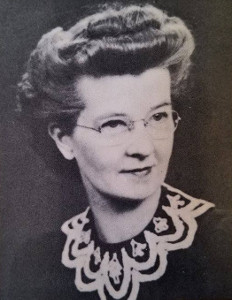William Penn: Friendly Boy

Author:
Miriam E. Mason
Illustrator:
Lawrence Dresser
Publication:
1944 by Bobbs-Merrill Company
Genre:
Biography, Non-fiction
Series:
Childhood of Famous Americans (Early Settlers)
Series Number: 69
Pages:
210
Current state:
This book has been evaluated and information added. It has been read but content considerations may not be complete.
Book Guide
Search for this book used on:
Is your father or brother or cousin away from home serving in the Navy? If so, you will have common interest with William Penn. His father was an Admiral in the English Navy nearly three hundred years ago.
William and his mother lived in a village eleven miles from London. At the opening of the book, the young Admiral is home on one of his rare visits and the whole family is going to London Town to see great Oliver Cromwell return from a victorious campaign.
In London five-year-old William meets by chance an older boy named Samuel Pepys and in his company enjoys the performance of a "fire-eater" whose smart tricks interest them more than Cromwell's procession.
The next year young William starts to school and, except for a few holidays, must spend ten hours every day at his lessons. But along with this hard work he has many amusing adventures in school and out.
For example, there's the incident of the Big Plum Pie that William orders baked for him and then can't pay for. And the story of his parrot from the West Indies, who has a way of yelling "Get a move on, you lazy sailor!" when this is not at all the right thing to say. And William's visit to an admiral with eight daughters—too many girls for one small boy to cope with! And how by stubborn thinking he rescues a schoolmate caught on the high limb of a tree.
When he is twelve he learns for the first time about the Quakers and thinks that when he is grown he may become a Quaker too.
William Penn often goes to the docks with his father. There his imagination is stirred by stories he hears the sailors tell about the brave New World across the Atlantic.
But, you say, this is a series of books about the Childhood of Famous Americans. And here's a book about an English boy. Why should an English boy belong in this company?
America is proud to claim William Penn. He founded the great Commonwealth of Pennsylvania. Its land was given to him by the King of England. Modest Penn wanted it to be called simply Sylvania, which means "forest," but the King insisted it should be named after him.
He founded the great city of Philadelphia, which means "Brotherly Love." William was always friendly. He liked all sorts of people, rich or poor, as this story of his childhood shows in many incidents. Later in his life he became a Quaker, a Friend with a capital F. He lived up to that name.
He was also a stubborn boy. He got a little tired of being called stubborn so often by his neighbors. But as his schoolmaster said once, "Being stubborn may sometimes be just a way of being brave." William, all his life long, was obstinate about doing the right thing, stubborn to see that wrongs were righted.
In the New World he treated his colonists with complete fairness, letting them buy land at moderate prices. His square dealing with the Indians is shown in his famous Treaty. He was among the first to establish in America freedom of thought and of religion. He did everything he could to stop the practice of putting people in jail for debt.
In the history books you'll see pictures of William Penn as a big stout man in a broad-brimmed hat. But here you will find him a child like you, a real boy who loves to run races and hunt walnuts, and who looks forward to the day when his father's ship will bring him home again.
From the dust jacket
To view an example page please sign in.
Content Guide
Please sign in to access all of the topics associated with this book and view other books with the same topics.
Please sign in to access the locations this book takes place in and view other books in the same location.
Please sign in to access the time periods this book takes place in and view other books in the same time period.
For information about the lead characters please sign in.
Find This Book
Search for this book used on:



